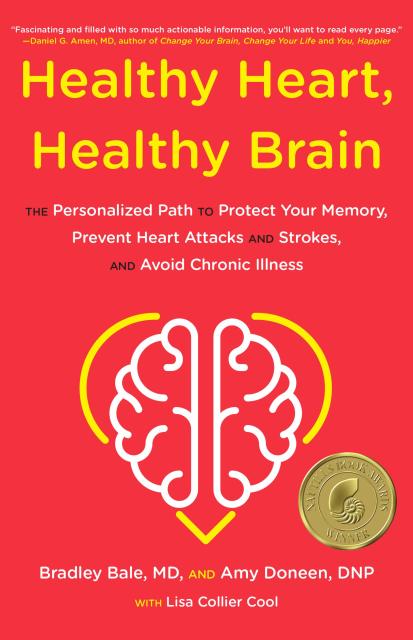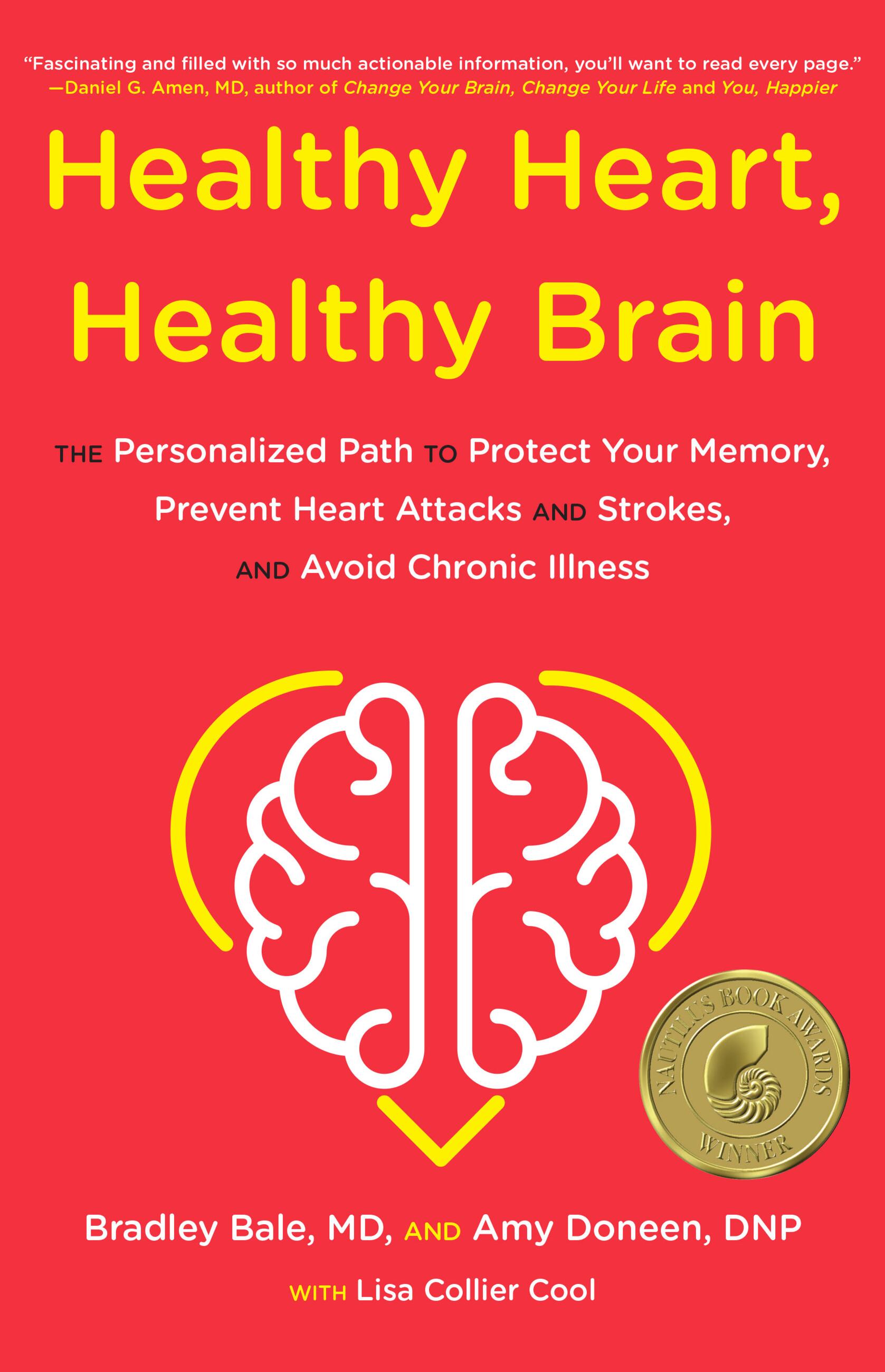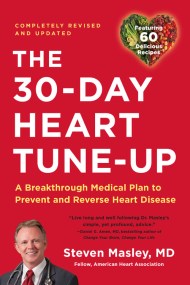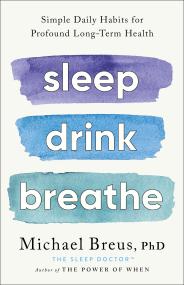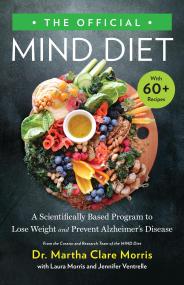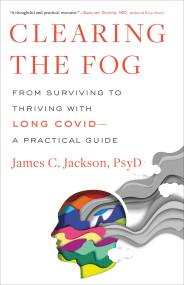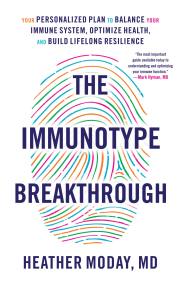By clicking “Accept,” you agree to the use of cookies and similar technologies on your device as set forth in our Cookie Policy and our Privacy Policy. Please note that certain cookies are essential for this website to function properly and do not require user consent to be deployed.
Healthy Heart, Healthy Brain
The Personalized Path to Protect Your Memory, Prevent Heart Attacks and Strokes, and Avoid Chronic Illness
Contributors
With Lisa Collier Cool
Formats and Prices
- On Sale
- Mar 15, 2022
- Page Count
- 464 pages
- Publisher
- Little Brown Spark
- ISBN-13
- 9780316705554
Price
$32.50Price
$41.50 CADFormat
Format:
- Hardcover $32.50 $41.50 CAD
- ebook $14.99 $19.99 CAD
- Audiobook Download (Unabridged) $27.99
This item is a preorder. Your payment method will be charged immediately, and the product is expected to ship on or around March 15, 2022. This date is subject to change due to shipping delays beyond our control.
Buy from Other Retailers:
Did you know that every forty seconds, someone in the US suffers a heart attack or stroke, and every sixty-five seconds someone develops dementia? The culprit is cardiovascular disease—and rates are soaring in younger, seemingly healthy people. Busting every myth we have about cardiovascular health, including that women are less likely to suffer from heart attacks and strokes, world-renowned cardiovascular specialists Bradley Bale, MD, and Amy Doneen, DNP, have pioneered a lifesaving method to prevent these devastating events—and reverse the disease that causes them.
The BaleDoneen Method transcends the medical silos of cardiology, neurology, endocrinology, and others with a holistic approach designed to protect and optimize the health of the heart, brain, and other vital organs, as well as the blood vessels that supply them. With laser-sharp focus, Bale and Doneen provide the latest research on how your oral health is contributing to the decline of your heart. Captivating and revolutionary, Healthy Heart, Healthy Brain is a unique and comprehensive program to prevent chronic diseases and memory loss in people of all ages regardless of their body type, medical history, or genes. Offering a roadmap to lifelong arterial wellness, it includes:
- Precision medical methods to prevent diseases of aging
- The best and worst supplements and foods for your heart
- Ten lifestyle moves that lower dementia risk by 35 percent
- Information about genes that raise cardiovascular risk as much as smoking
- The top ten heart attack prevention tips for women
Healthy Heart, Healthy Brain will equip you with the knowledge you need to approach your healthcare as an empowered and informed patient.
-
“Healthy Heart, Healthy Brain will help you change your body, heart and mind. I can’t recommend this groundbreaking book from Bale and Doneen enough. Fascinating and filled with so much actionable information, you’ll want to read every page.”Daniel G. Amen, MD, author of Change Your Brain, Change Your Life and You, Happier
-
"Healthy Heart, Healthy Brain summons us to reclaim our health. With simple screening tests and diagnostics, it revolutionizes our idea of preventative medicine as well our concepts about holistic health. No longer do you need to go to a different specialist for every body part when you take Drs. Bale and Doneen’s approach. If you care about your health and longevity, you’re going to want to read this book.”Edward Mylett, author of #MaxOut Your Life
-
“Based in the most cutting-edge and formative science, Healthy Heart, Healthy Brain unravels cardiovascular disease in a holistic and personalized manner. [It has] practical advice and simple tricks based upon their revolutionary BaleDoneen Method, which has been meticulously developed over the past two decades–– you won’t regret getting your hands on this book!”Robert G. Darling, MD, FACEP, FFSEM, White House Physician, ‘96-’99, Founder & Chief Medical Officer of Patronus Medical
-
"Healthy Heart, Healthy Brain is a life-saving book! I would know –– I am alive today because of Bale and Doneen’s extraordinary work. Providing me with top-notch medical advice and treatments for over a decade, they continue to open our eyes to the insidious ways cardiovascular disease can creep into our lives by examining everything from oral health, diets, and sleep patterns to provide precise, extensive, and approachable advice for anyone who picks this book up.”Dr. Jeff Life, author of The Life Plan Diet
-
“I’ve not only used the BaleDoneen method, but I’ve seen it work with my former patients. A comprehensive yet personalized approach to identifying and eliminating inflammation, Healthy Heart, Healthy Brain is a roadmap to the future of cardiovascular disease management. A true practice changer, this is sure to be one of the most compelling books you’ve read in years!”Sean Conley, DO, FACEP, White House Physician, ‘2016-21’,
-
“Dentists have a significant role in managing oral infections and the airway. The principles outlined in Healthy Heart, Healthy Brain recognize the critical role of oral healthcare providers in cardiovascular wellness. Everyone who wants to be as healthy as they can be should read this book.”John C. Kois, D.M.D, M.S.D, Founder and Director of Kois Center, LLC
Newsletter Signup
By clicking ‘Sign Up,’ I acknowledge that I have read and agree to Hachette Book Group’s Privacy Policy and Terms of Use
